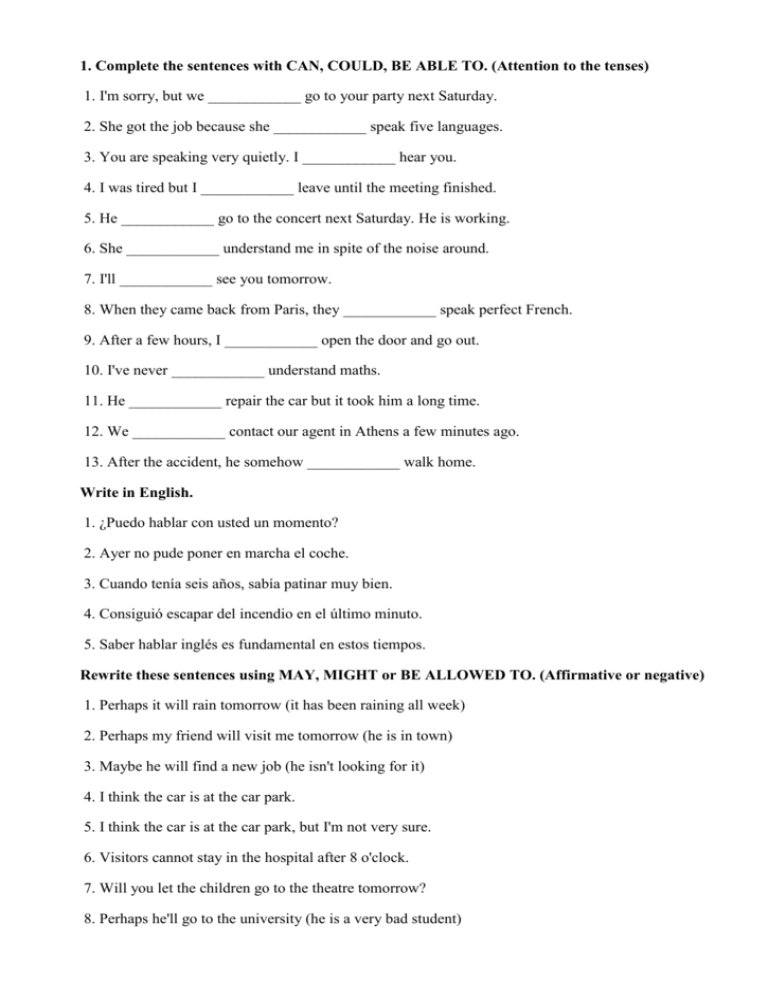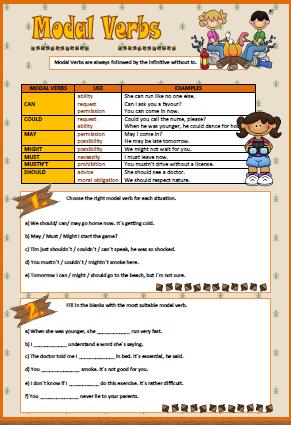

The job interview was a disaster I could only answer half the questions!.This computer is so simple that it is able to be operated by anyone.I can’t have been able to drive since I broke my arm last June. When I finish the course next year I can speak perfect French.I could be promoted last year but I preferred to stay on the shop floor.We took an exam yesterday and I couldn’t answer any of the questions.Tick (✓) the correct sentences, then find and correct the mistakes. Diagnostic Test: Modal Verbs (1): Can, Could, May, Might, Be able toįifteen of the sentences below contain mistakes with modal verbs. You must know where to use these modal verbs, in order to get a better IELTS band score in the exam. These modal verbs are mainly used for academic writing task 2. Guesses about the past/ possible but uncertain Something that is possible, but not certain General statements about the future from the past Many modal verbs have more than one meaning and are followed by the simple form of the verb. Modal verbs are the helping verbs that express ideas like a possibility, impossibility, certainty, ability, seeking permission, making requests and so on. 1.3 Modal verbs: Practice Exercises with answersĪdvanced Grammar for IELTS: Modal verbs (1): Can, Could, May, Might, Be able to – Diagnose Test, Grammar Explanation & Practice.1.2.4 Asking For And Giving /Refusing Permission.1.2.3 Arrangements, Suggestions, Offers, Etc.1.2.2 Possibility, Deduction And Speculation.1.2 Grammar Explanation: Modal verbs (1): Can, Could, May, Might, Be able to.1.1 Diagnostic Test: Modal Verbs (1): Can, Could, May, Might, Be able to.1 Advanced Grammar for IELTS: Modal verbs (1): Can, Could, May, Might, Be able to – Diagnose Test, Grammar Explanation & Practice.exercise 3: drag and drop exercise with can, could, may, might, should and would.exercise 2: fill in can, could, have to, must, might or should.exercise 1: choose could, might, would or should.Must, may, might, can, can’t, could, would and should exercise 7: fill in should, must or mustn’t.




 0 kommentar(er)
0 kommentar(er)
